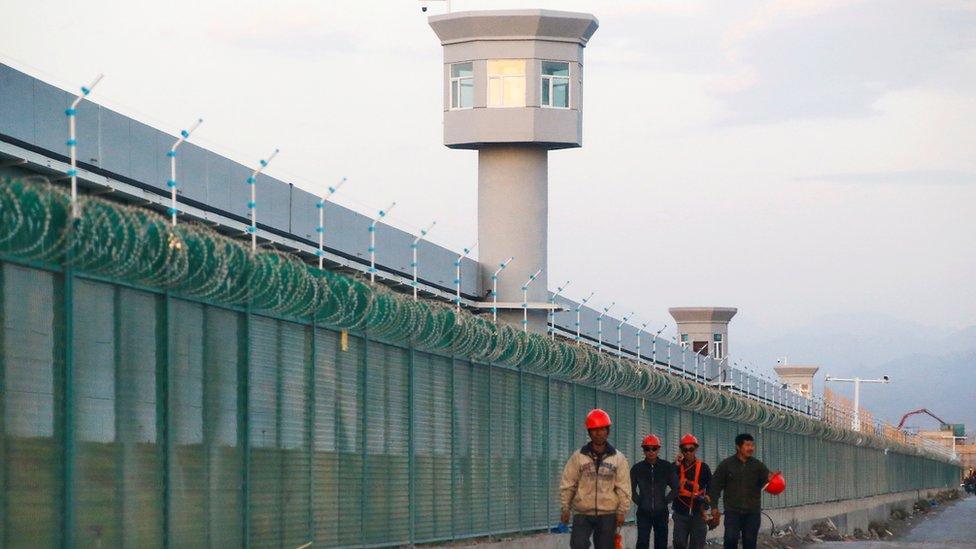China sending children of exiled Uighur parents to orphanages, says Amnesty
- Published
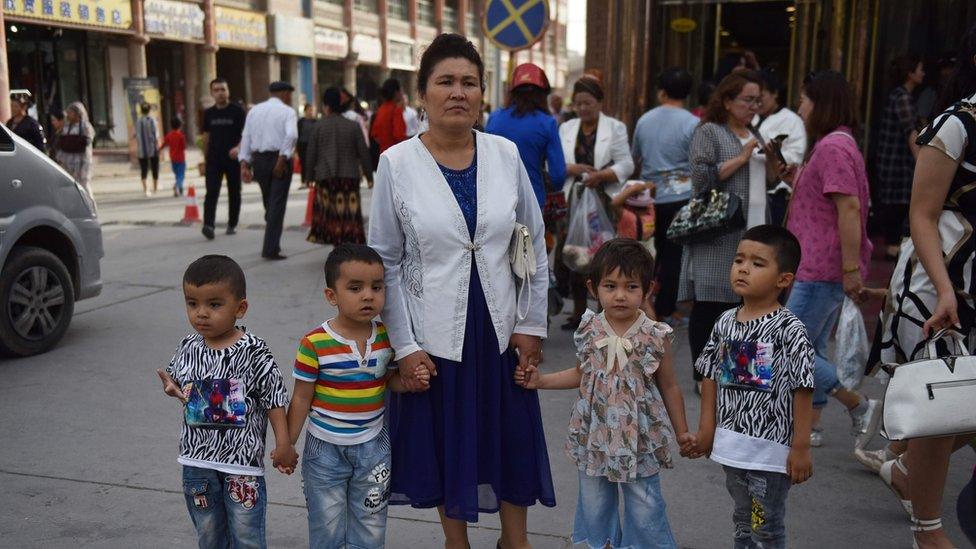
A file photo shows a Uighur woman with children in China's northwest Xinjiang region
China has forcibly separated Uighur families by taking young children into state orphanages, according to human rights group Amnesty International.
In a new report, Amnesty has called on China to release all Uighur children being held in orphanages without the consent of their families.
The charity spoke to parents who left children with relatives in China when they were forced to flee the country.
Rights groups say China has detained more than a million Uighurs.
The Chinese government has also faced allegations of a wide range of human rights abuses against the Uighur people and other Muslim minorities, including forced labour, forced sterilisation, sexual abuse and rape.
The government denies it is holding Uighurs in detention camps in the Xinjiang region in north-western China. It says the camps are "re-education" facilities being used to combat terrorism.
Because access to Xinjiang is heavily restricted by the Chinese, Amnesty spoke to Uighurs who were able to flee Xinjiang before the repression of the Uighur people intensified in 2017.
Mihriban Kader and Ablikim Memtinin fled from Xinjiang to Italy in 2016 after being harassed by police and pressured to give up their passports, Amnesty said. They left four children in the temporary care of grandparents, but the grandmother was taken to a detention camp while the grandfather was interrogated by police, the charity said.
"Our other relatives didn't dare to look after my children after what had happened to my parents," Mihriban told Amnesty. "They were afraid that they would be sent to camps, too."
In November 2019, Mihriban and Ablikim received a permit from the Italian government to bring their children to join them, but the children were seized by Chinese police on the way and sent to a state-run orphanage, Amnesty said.
"Now my children are in the hands of the Chinese government and I am not sure I will be able to meet them again in my lifetime," Mihriban said.


Omer and Meryem Faruh, who fled to Turkey in late 2016, left their two youngest children, aged five and six, with grandparents because they did not yet have their own travel documents, Amnesty said. They found out later that the grandparents had been arrested and sent to a camp and have not heard from their children since.
Amnesty's report calls on China to provide full and unrestricted access to Xinjiang for UN human rights experts, independent researchers and journalists, and for all children held without their parents consent to be released to family.
"China's ruthless mass detention campaign in Xinjiang has put separated families in an impossible situation: children are not allowed to leave, but their parents face persecution and arbitrary detention if they attempt to return home to care for them," said Alkan Akad, Amnesty International's China researcher.
The BBC's John Sudworth meets Uighur parents in Turkey who say their children are missing in China
The Chinese state has created a vast and secretive network of camps in Xinjiang and is estimated to have detained more than a million Uighurs and people from other Muslim minority groups.
Reports have emerged in recent years of appalling human rights abuses, from forced sterilisation of Uighur women to torture and systematic rape inside camps.
China denies there are any human rights abuses taking place, and has called former camp detainees in exile liars and actors. China is also accused of intimidating and smearing witnesses who have spoken up, and of using witnesses's relatives in Xinjiang as leverage against them.
The US, Canada, and the Netherlands have declared that China is committing a genocide against the Uighur people. A similar bill was rejected by the UK parliament.
- Published2 February 2021
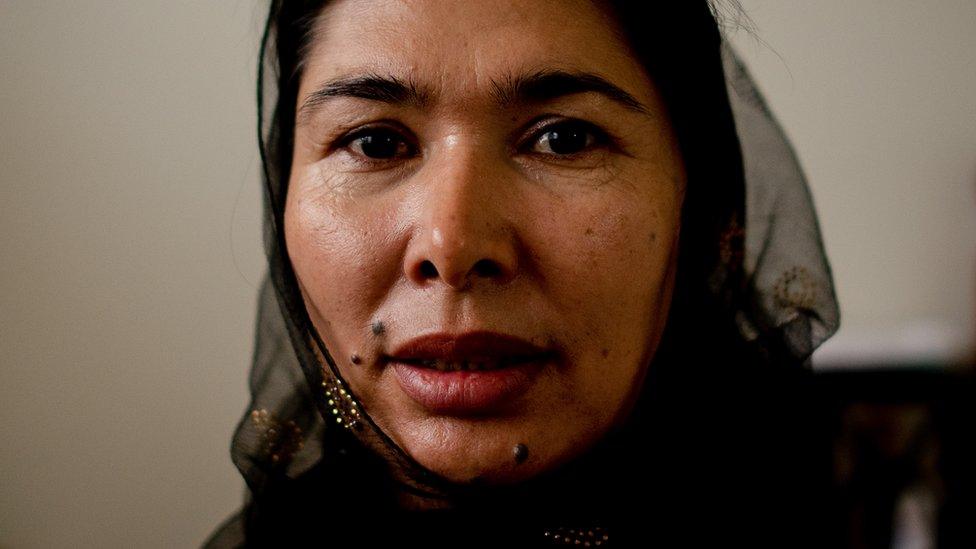
- Published20 January 2021
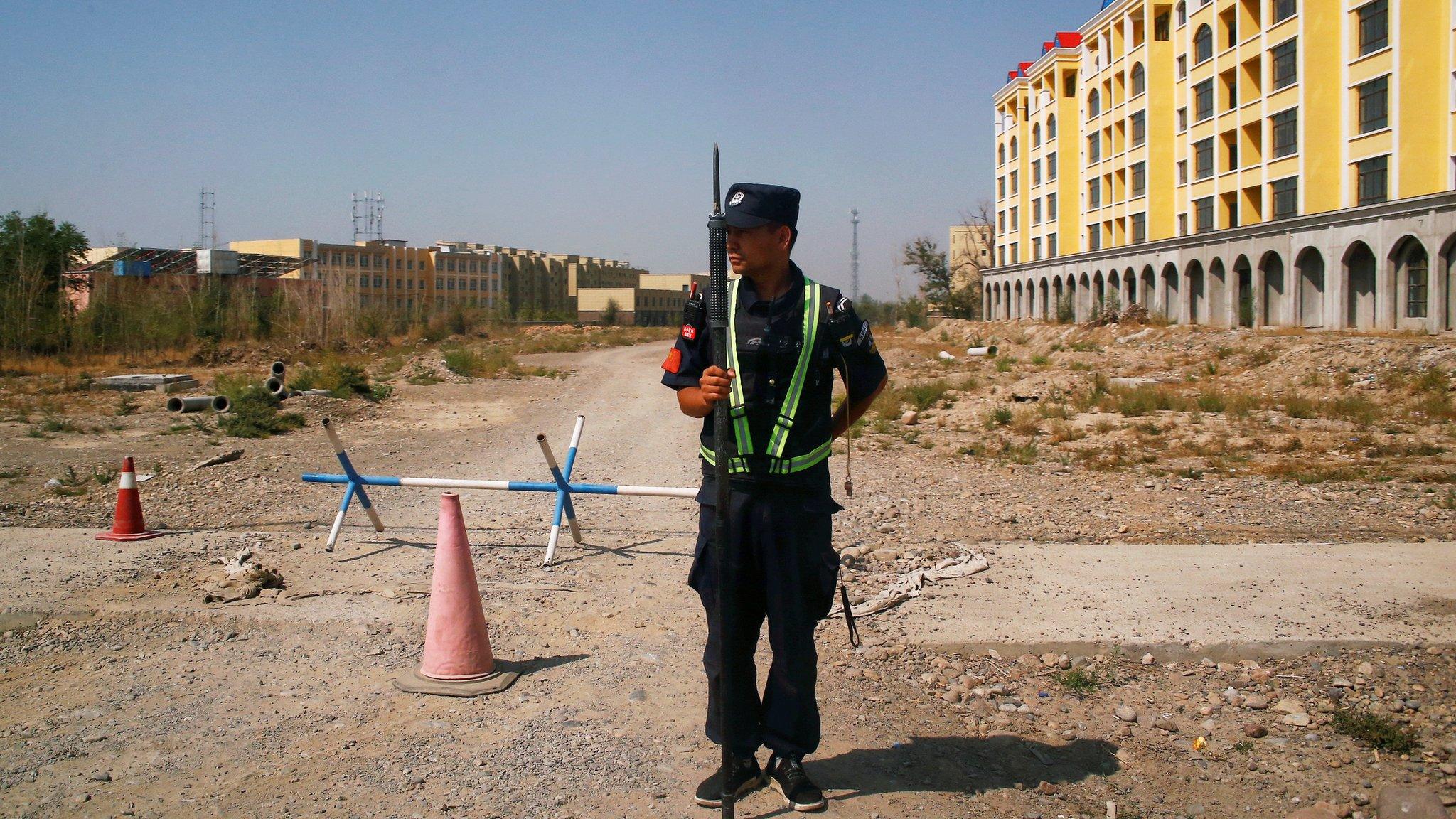
- Published4 August 2020
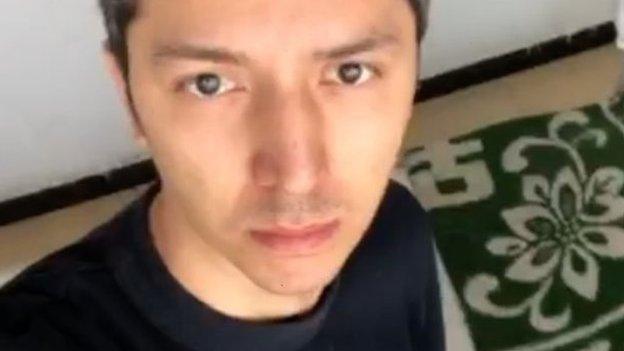
- Published24 September 2020
